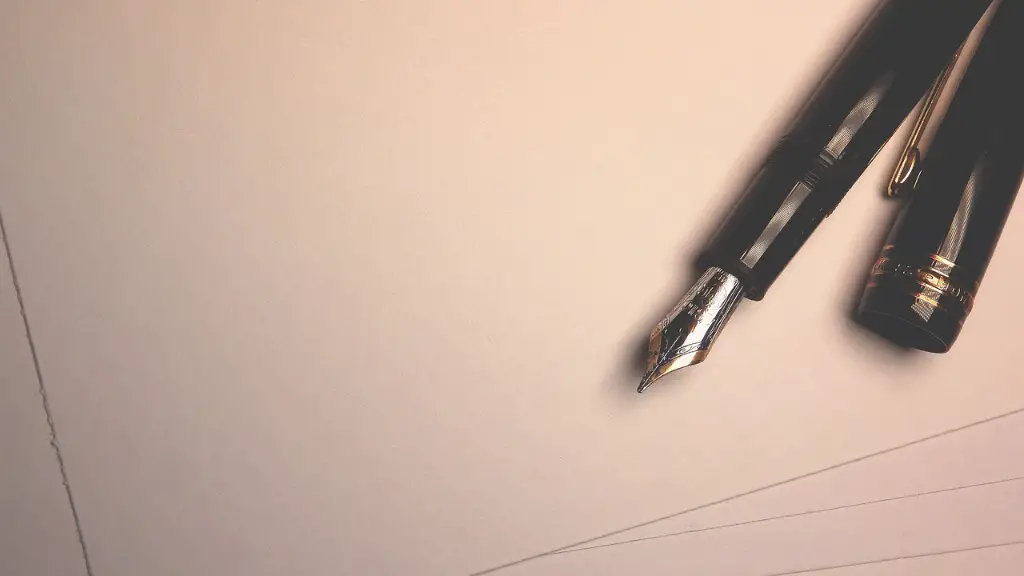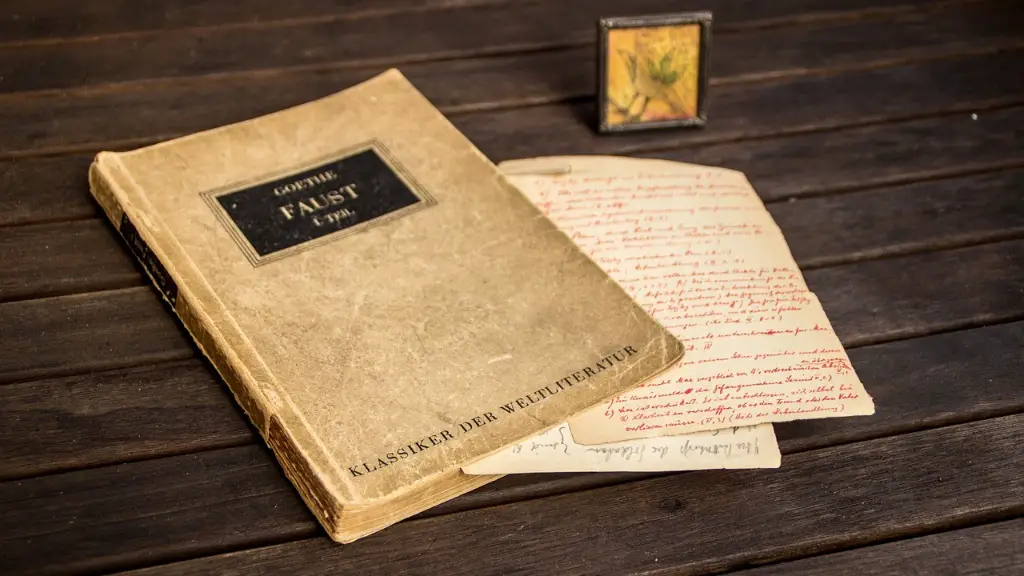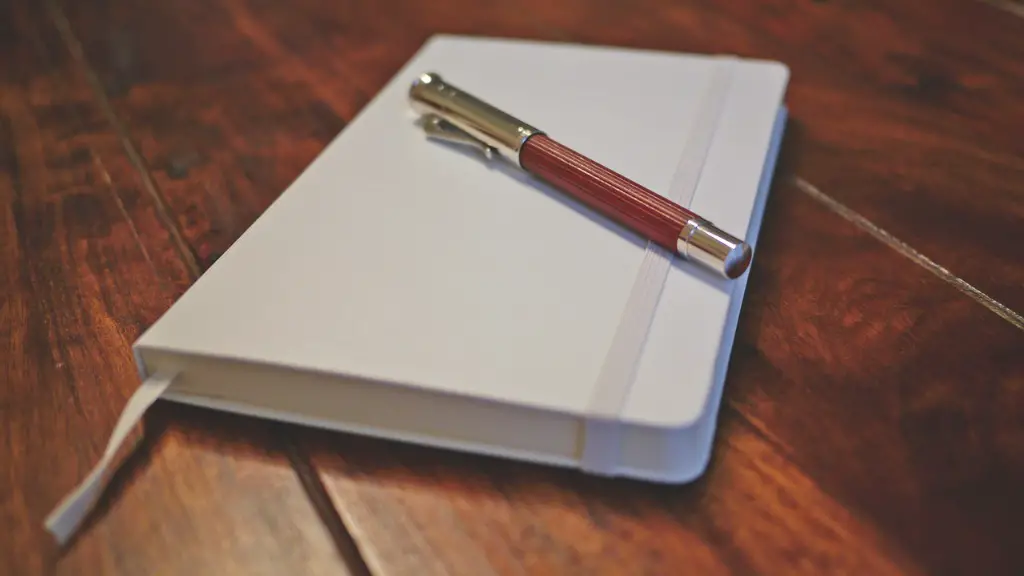What Poetry and Prose Have in Common
The world of literature encompasses many genres, including poetry and prose. Although they are two distinct entities, poetry and prose both involve telling stories, expressing emotions, and engaging readers. Poetry exists in both written and oral forms, and it often has a lyrical, rhythmic, and sometimes rhyming quality. Prose, on the other hand, is written language that lacks any regular metre and rhymes. Despite the obvious differences between the two, what do poetry and prose have in common?
To begin with, both poetry and prose appeal to readers of all ages. Some poets use rhyme and rhythm to create beautiful, eye-catching sonnets that might be more enjoyable for young audiences. Meanwhile, classic novels or essays will have readers of all ages captivated, as the author takes them on an engaging journey with meaningful themes and creative plots. In this sense, poetry and prose both offer something valuable to different audiences.
Moreover, both poetry and prose rely on the use of figures of speech. Poets often employ tropes, which are figurative claims or comparisons. Examples of tropes include metaphors, similes, and onomatopoeia. Similarly, prose authors also employ tropes, such as irony and alliteration, to expressively paint a vivid picture of their stories. Figures of speech are powerful tools, and both poets and prose writers use them to create deeper and more vivid descriptions for their readers.
Furthermore, both poetry and prose involve the use of different literary devices. Different poetic techniques are present in poetry, such as alliteration, assonance, and metonymy. In non-fiction prose, the writer may use literary elements such as symbolization and personification to illustrate an idea or a concept. Thus, a writer of either poetry or prose can utilise a wide range of techniques to enhance their story and create engaging experiences for their readers.
In addition, both poetry and prose involve a great deal of creativity. Poets have a unique opportunity to explore the use of language, images, and sounds to create works of art. Similarly, prose writers also have the possibility to creatively approach topics, settings, and characters to express themselves. Thus, whether it’s a poetic stanza or a non-fiction essay, both can be considered works of art that require the highest degree of creativity from the authors.
Finally, poetry and prose contain powerful messages that can influence the minds of their readers. Whether the writer intends to or not, the stories contained in the works have the potential to inspire thought and create change. Those messages can be as small as inspiring a reader to take action and as big as challenging the social, political, and cultural norms. In this sense, both poetry and prose demand respect and offer invaluable messages.
A Long History
The relationship between poetry and prose has a deep and long history. Even in early civilizations like those of the Ancient Greeks and the Romans, poets and storytellers were highly respected members of society. In many cases, their work was considered more valuable than that of the philosophers and scientists of the time. Thus, it is clear that the connection between poetry and prose is deeply rooted in our collective history.
The first written works of literature tended to be poems rather than prose, and this tradition has carried over to the present day. In many literary circles, poetry is still seen as the highest form of literary expression. This is in part due to the elevated language and imagery often associated with the genre. Poetry can be powerful, evocative, and even liberating for readers. Thus, it is no surprise that this genre still enjoys a place of honor in the literary world.
Moving forward, it is clear that the relationship between poetry and prose is more complex than ever. Contemporary authors are creating works that blur the lines between the two genres. Through the use of creative techniques, authors are producing hybrids of poetry and prose that are just as captivating to modern readers as traditional works.
One thing that remains clear throughout the evolution of literature is that both poetry and prose continue to be essential tools for expressing human emotions, thoughts, and experiences. Whether it’s a classic poem or an avant-garde novel, the impact of poetry and prose on the minds of readers remains strong and undeniable.
Measuring Success with Poetry and Prose
In the world of literature, success is often determined by reader reception. Traditional measures of success include awards for works and recognition from other respected authors. However, in recent years, metrics have evolved to measure success digitally. Technology has enabled us to track the popularity of authors and works, opening up endless possibilities for measuring the success of both poetry and prose.
Digital metrics are often used to measure the success of a work. Services like Kindle Unlimited allow readers to access their favorite ebooks, while sites like Goodreads make it easy to track reader reviews. Using these digital metrics, one can get a measure of the popularity of various authors and works. These metrics are particularly useful for authors who are just entering the literary world and trying to break through. Through these modern tools, both poets and prose authors can more accurately judge the success of their work.
In a digital world, there are also various platforms that authors can take advantage of to gain more recognition. For example, authors can turn to social media to share their work and engage with their readers. Sites like Twitter and Instagram have proven to be highly effective for authors to gain a following and connect with their readers. Thus, technology has opened up new opportunities for both poets and prose authors to find success.
Retailers such as Amazon can also be used as effective marketing tools for both poets and prose authors. Amazon’s Kindle store, for example, sells both electronic books and physical books and can be a powerful platform to reach a wider audience and increase your visibility. By using these services, poets and prose authors can expand their reach and get their work out to larger audiences.
The Impact of Poetry and Prose on Society
The impact of poetry and prose on society goes beyond just entertaining readers. Both genres have the power to inspire and create meaningful change in our lives, as they touch on various topics ranging from politics to science and from religion to morality. The power of literature lies in its ability to communicate complex ideas and evoke emotions that can bring about real change in the lives of its readers.
The benefit of reading poetry and prose is that it increases our understanding and appreciation of the world around us. By reading works of literature, we are introduced to different worlds, ideas, and perspectives. Through reading, our understanding of the world broadens and we gain a better insight into different cultures, philosophies, and lifestyles. This increase in knowledge and understanding can lead to positive transformations in our own lives, as well as the lives of those around us.
Moreover, literature plays a vital role in our emotional development. By reading both poetry and prose, readers are exposed to a variety of emotional experiences. Through these works, authors can express ideas and feelings in ways that can strongly resonate with readers and touch their hearts. Thus, reading works of literature helps us become more emotionally intelligent and mature.
Finally, both poetry and prose serve an important role in preserving the language. For example, the English language has dozens of words that are now rarely used and some that have completely fallen out of favor. By reading works of literature, readers are exposed to this “lost” language and are able to expand their vocabulary as well as their knowledge of the English language.
New Technologies and Poetry and Prose
Although some argue that technology has weakened the impact of literature, it actually presents an opportunity to revive the connection between authors and readers. Technology has allowed authors to foster more meaningful relationships with their readers and to better market their works. Through sites such as Facebook, Twitter, and Instagram, authors can connect with their readers on multiple levels and gain invaluable feedback on their works.
In addition, technology has also enabled authors to create more innovative works. Rich media such as video and audio allow authors to create more captivating experiences for their readers. This technology allows authors to create works that are much more immersive and interactive than ever before. Through this technology, authors have the opportunity to effectively communicate their message and create experiences that readers can truly engage with.
Finally, technology has opened up new opportunities for authors to find success. Through services such as Amazon and digital publishers, it is now much easier for authors to find success in the literary world. Through these services, authors can more effectively market and distribute their works, significantly increasing the reach of their works.
Breaking the Boundaries of Poetry and Prose
As technology continues to progress, boundaries between poetry and prose are beginning to blur. Literary hybrids, such as e-poems and digital novels, are becoming increasingly popular, and traditional literature is being reimagined in ways that are both captivating and inspiring. Authors are using technology in innovative ways to create experiences that go beyond the boundaries of the traditional genres.
Moreover, technology has opened up new possibilities for collaboration between authors. Emerging technologies such as virtual reality and augmented reality now allow authors to work together remotely, bringing their ideas and works to life in completely new ways. This opens up exciting opportunities for authors to cooperate and create truly unique works.
Finally, technology has allowed authors to more accurately measure the success of their works. Online analytics provide authors with valuable metrics, allowing them to better assess which stories are resonating with their readers. These metrics can be used to understand the preferences and habits of readers, thereby informing the authors on how they can better create works that meet the needs and desires of their readers.





